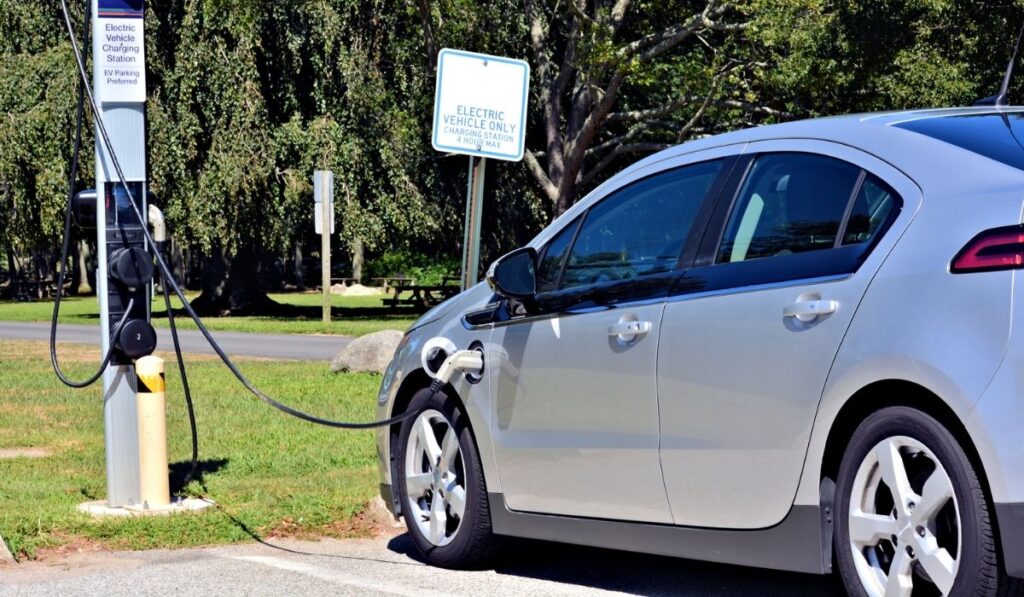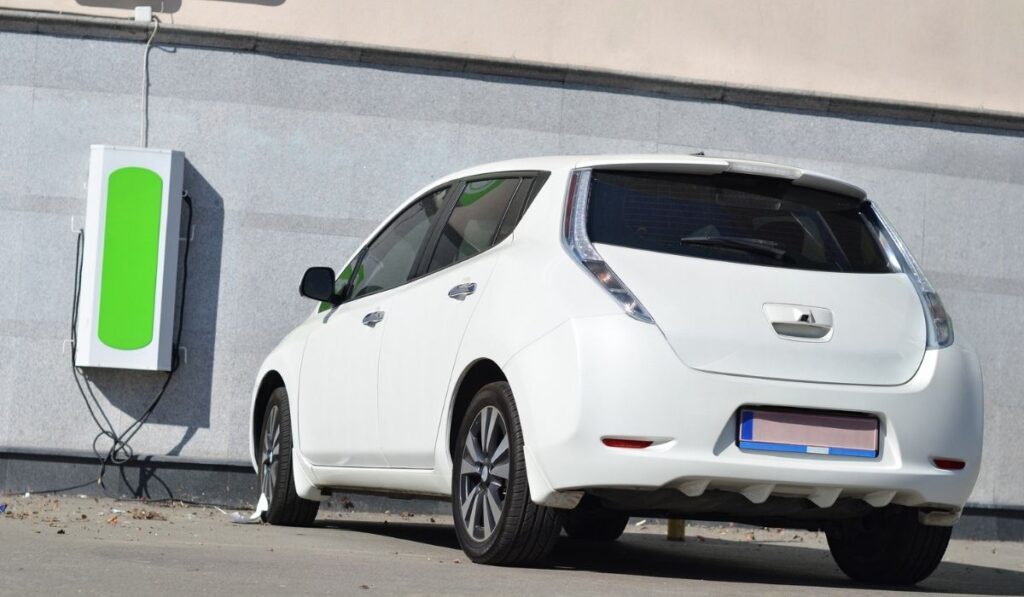The way we travel is changing rapidly as technological advances focus on sustainability and greener ways of getting from point A to point B. Vehicles are gradually becoming cleaner and smarter as part of this process, but are electric vehicles (EVs) really the future of transport?
Electric vehicles are on course to replace combustion engines while producing less emissions. When compared to traditional vehicles, EVs also offer a quieter ride, a lower center of gravity, and lower costs over time. Studies predict EVs will be a majority of all car sales by 2050 at the latest.
However, without having experienced the feel of an electric vehicle yourself, it can be difficult to know if it’s the right option for you. Let’s take a closer look at electric vehicles, the role they play in the market, and why you might want to consider one for yourself.
Are Electric Vehicles the Future of Transportation?

It’s important to understand whether electric vehicles can be the environmentally friendly mode of transportation that we need. Many governments appear to be implementing policies based on the assumption that electric vehicles, at the very least, are the way of the future.
Furthermore, according to Wood McKenzie researchers, annual electric car sales are predicted to exceed 45 million by 2040, resulting in a global EV stock of 323 million cars.
In addition to the environmental implications, these cars provide a variety of benefits and come in a diverse variety of both luxury and more cost-friendly options. However, EVs also come with a handful of obstacles.
Battery technology has advanced significantly in recent years, but the power output for bigger cars in particular is still insufficient to make them very practical.
Regardless, transitioning to electric vehicles and powering them with renewable energy sources such as solar and wind will reduce emissions and help us avoid the worst effects of climate change.
Why EVs Are Going to Take Over the Future
We must recognize that modern-day issues necessitate modern-day answers. In order to reduce pollution, reliance on fossil fuels should be reduced, with a shift to all-electric choices in the future.
Moreover, even after the pandemic, demand for electric vehicles is projected to stay strong and take over the future. There are many reasons behind this shift by the general masses from using traditional cars to electronic ones.
These reasons involve the reliability and flexibility of electric cars, as well as their contribution to a cleaner environment. Three of the main reasons why EVs seem likely to take over the future will be discussed below.
1) Fossil Fuels Are Not Sustainable
Fossil fuels are made from the remains of living organisms over time. Coal, natural gas, and other fossil fuels can be both unsustainable and harmful, which is why they should be avoided as much as possible.
Many countries have begun to restrict coal power stations in favor of more environmentally friendly alternatives, which gives us some hope for the future. This also suggests that electric vehicles are unlikely to run out of fuel resources in the near future.
Some experts predict that the world will run out of fossil fuels in about 53 years, which means that there’s a limit to how long people can keep doing what they’re doing before resources become scarce and expenses rise dramatically.
There won’t be enough fossil fuels to go around if nothing changes, and as a result, many industries would be greatly affected.
2) They’re Cheaper Option Overall
Electric vehicles are generally less expensive to operate and maintain when compared to traditional vehicles. EVs do, without a doubt, have higher initial purchase prices, but owners can save a lot on operational costs later on.
Electrical motors also have far fewer parts than gasoline engines, resulting in reduced wear and tear and lower maintenance and repair costs. While EV batteries do eventually run out, requiring replacement after a few years, these vehicles are still less expensive than gasoline or diesel vehicles.
Furthermore, many governments are beginning to implement EV tax incentives and business grants.
Fuel is, of course, another cost-cutting aspect. Oil prices keep rising and levies will be imposed as resources become more scarce. Of course, electric vehicles, on the other hand, do not suffer from any of these problems.
3) They Offer More Enjoyable Driving Experience
The torque motor in the electric car permits the driver to experience tremendous, dynamic acceleration that feels great.
Since there is no clutch on an electric motor, it results in a jolt-free ride. The pace is steady and easy, but it’s also lively.
They also feature a lower center of gravity, which is advantageous in terms of both driving and safety. In terms of safety, the vehicles are less likely to roll over, and the lack of fuel means that there is less risk of fires or explosions.
Furthermore, the electric vehicles that are currently being produced offer the greatest in terms of safety and luxury. They are frequently equipped with the most up-to-date specifications and features and are designed to last and handle accidents more efficiently.
How EVs Are Changing the World Right Now
Electric vehicles aren’t simply a thing of the future; they’re already saving lives and transforming the planet. People all across the world are moving to electric vehicles, and there’s a lot of talk about a future with a cleaner, more efficient mode of transportation.
These automobiles undoubtedly deliver dozens of new societal benefits, including enhanced air quality and health, domestic economic development, and environmental benefits. They’ve had a big impact on technology usage already, and vehicle manufacturers are constantly attempting to improve and perfect the technology that goes into EVs.
An example of this is bidirectional charging (also known as the two-way charging), which occurs when energy is allowed to flow in both directions from the grid into the automobile and from the car to the grid.
When opposed to standard one-way chargers that can only power your automobile, this represents a significant advancement in charging technology. Due to its expensive costs and unnecessarily enormous size, this technology was previously only used in limited trial projects.
When Will EVs Take Over?

EV sales and acceptance rose in major markets in the second half of 2020, despite the economic crisis triggered by the COVID-19 pandemic.
According to the BBC, electric car sales contributed to only 5% of total car sales in 2020. That may not seem so significant. However, it has represented a 43 percent rise over the last year and has the potential to skyrocket from there.
Regulatory pressure and customer interest in electric vehicles differ significantly by area. Europe is primarily a regulation-driven market with generous subsidies.
Since Europe is a regulation-driven market, it is predicted to electrify the fastest, with a favorable consumer demand trend, and to remain the major player in electrification in regards to EV market share.
EV sales in the United States, meanwhile, have risen slowly due to a lack of regulatory pressure and customer demand. Under the present regulatory targets, the worldwide EV usage is predicted to reach 45 percent.
Even this transformational EV growth forecast, unfortunately, falls far short of what is required to reach net zero emissions. By 2030, EVs would need to account for 75% of worldwide passenger car sales, which would be a huge increase over the industry’s present speed.
Finally, another study done by UBS predicts that electric vehicles will account for 20% of the new auto sales in 2025, 50% in 2030, and nearly 100% in 2040. This means that EVs could take over by 2040, and the largest automotive markets will likely go electric. Other predictions, however, are slightly more conservative.
Analysis firm IHS Markit predicts electric cars will comprise just 62 percent of sales by 2050. That would mean EVs could comprise about 41 percent of the global fleet by that time.
